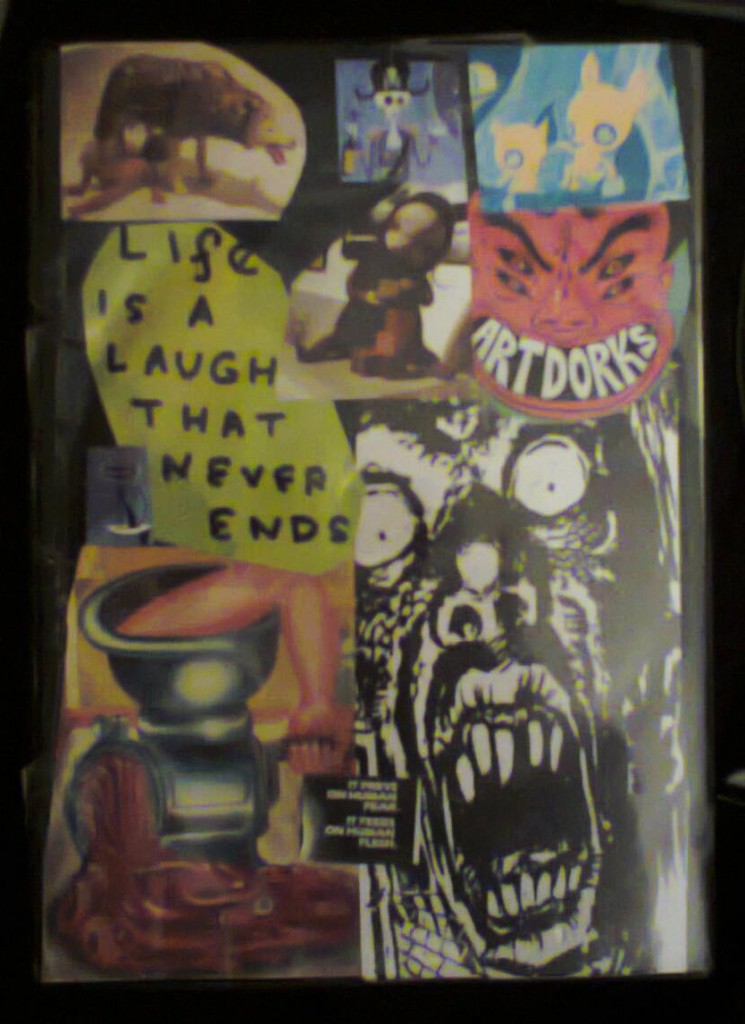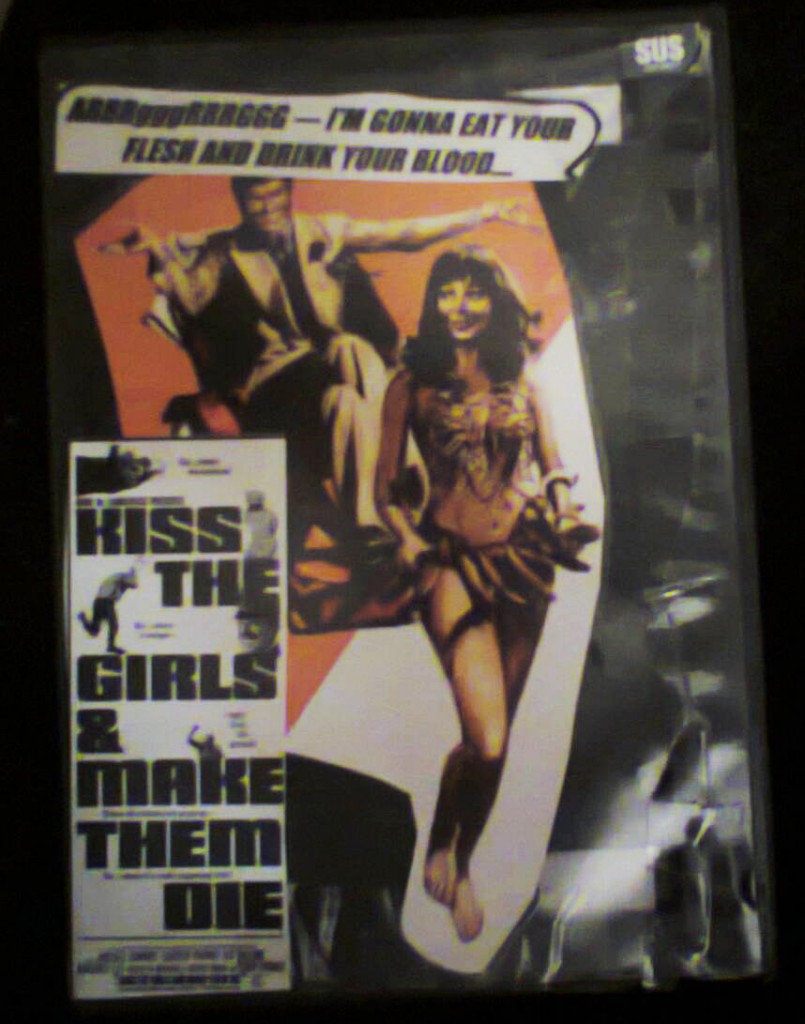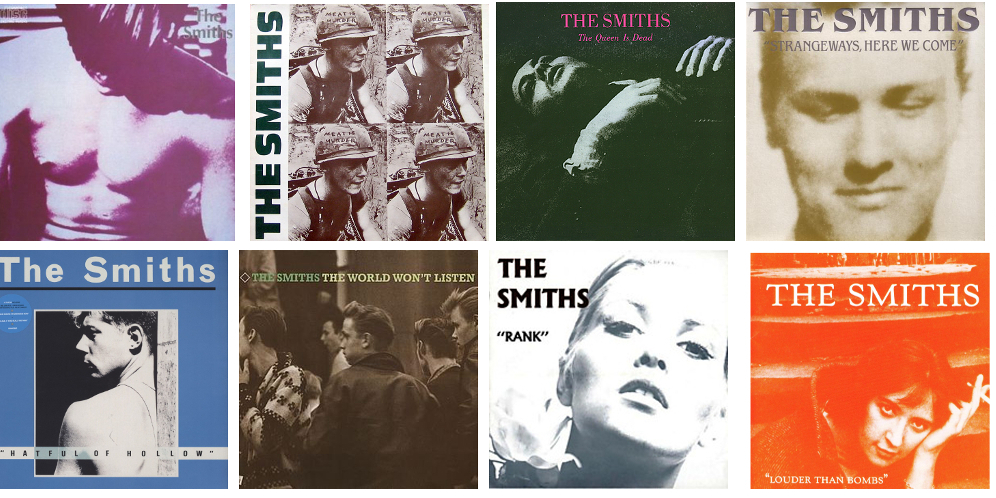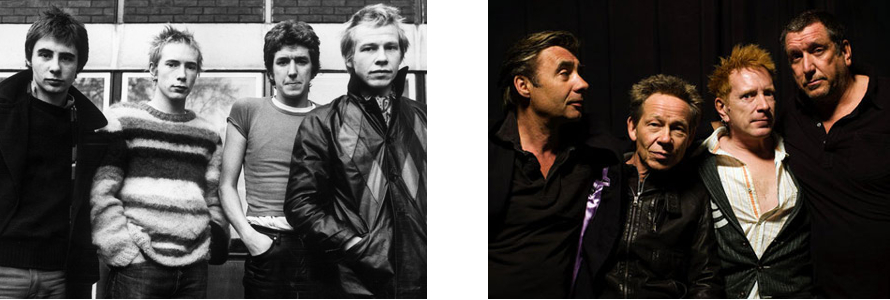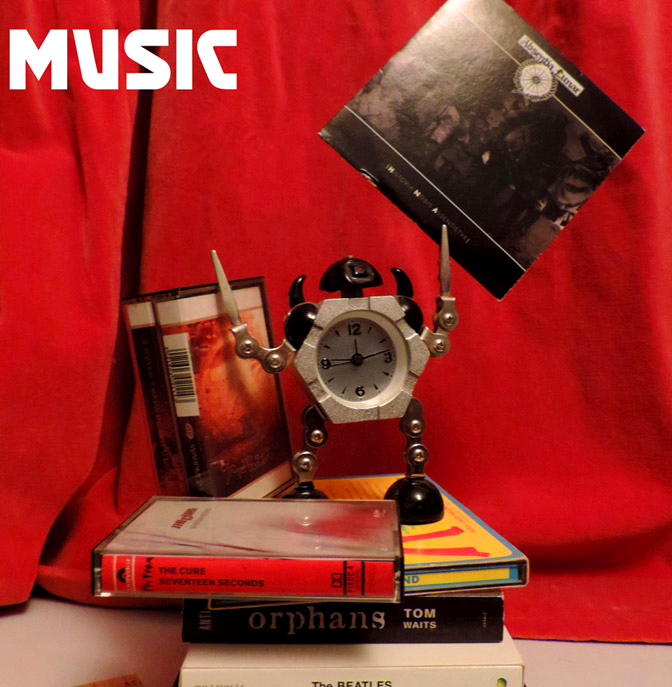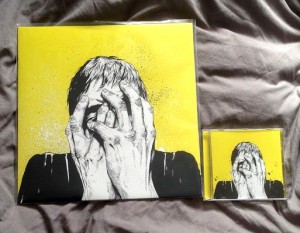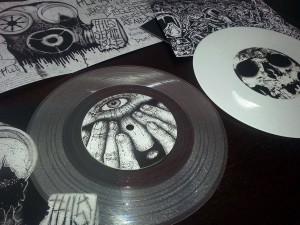A question occurred to me while watching a documentary about Joy Division; is there any better ending to a song than Ian Curtis bellowing FEELING FEELING FEELING FEELING FEELING FEELING FEEEEEELING! as the music clatters to a halt at the end of “Disorder”? Lyrically, despite its explosiveness, it isn’t cathartic, but in a musical way it is – for the listener at least – because until that point, the tempo has been too fast and the lyrics too complex for Curtis’s voice to do whatever its deep, melancholy equivalent of ‘taking flight’ is.
There’s an underappreciated art to ending songs and it’s not something that even the greatest bands do infallibly or that all great songs feature. Not every song needs to end with a crescendo or flourish, and very few songs benefit from just grinding to a halt or being cut off mid-flow, but the sense of completeness when a song (especially a relatively short song) ends perfectly is one of the things that makes you want to hear it again.

“Decades,” the final song on Closer, the final Joy Division album, is one of relatively few songs (given their vast number) where fading out at the end doesn’t seem like a cop out. There’s nothing inherently wrong with fading out a song, but too often it just feels like an easy option taken in order to dodge the question of how to end a song properly. Which is fine, except in live performances, where it’s difficult to satisfactorily replicate a fade-out. Partly that’s because of the practicality of it – does the band (as I have witnessed) all try to play more quietly? Do they just (as I have also witnessed) get the sound person to turn down the volume, which works unless you’re close to the front, which, in that situation is sub-optimal, since hearing the unamplified sounds from the stage (drums clattering, guitars plinking etc) is kind of a mood-killer? And if so, when do they all stop? There’s also the awkwardness of the audience reaction; the crowd might start cheering/jeering before the song is actually finished, or they might not start until someone in the band indicates that that the song is definitely over, which is also not ideal. Basically, it feels artificial – but obviously it has the appeal of being simple: haven’t thought of a proper ending for your song? Just keep playing and fade it out afterwards. But Closer, of all albums, needed to fade into silence and it does.
Another musical ending this week – a seriously clunky segue this but bear with me – was the death of Ozzy Osbourne, a week after what was explicitly intended to be his final performance, a different kind of ending and a very unusual one in the music world where ‘farewell’ tours can become an annual occurrence and no split is too acrimonious to be healed by the prospect of bigger and bigger sums of money.
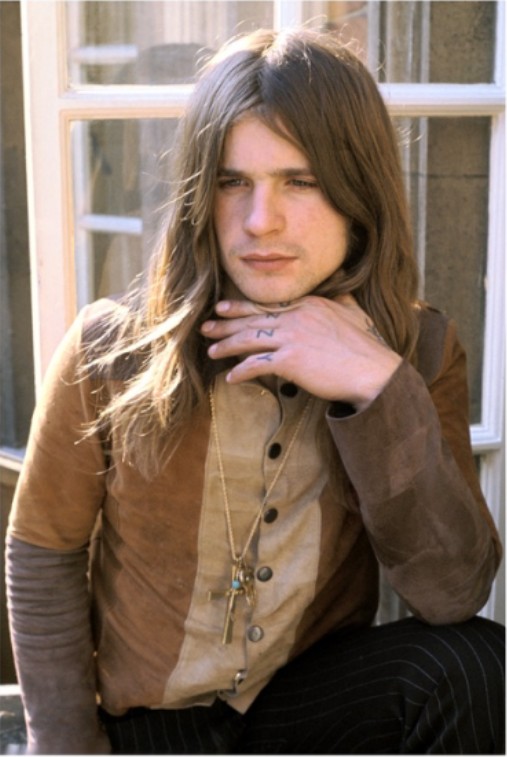
On paper, any kinship between Ozzy and Joy Division seems unlikely to say the least, but the ears say otherwise. Regardless of the punk roots of Joy Division, the only real precursor to a song like “New Dawn Fades” from their 1979 debut album Unknown Pleasures is Black Sabbath. Not only because of the oppressively doomladen atmosphere, though that’s important; Bernard Sumner’s opening guitar melody is remarkably like Tony Iommi’s melodic solo from “War Pigs” – a classic song, incidentally, which has one of the worst endings ever foisted onto any great song. Presumably, Black Sabbath had no idea how to end it, kept jamming and then did something worse than a fade out; speeding it up until it ends either with a bang or whimper, but with a comical squeak.* Oh well. But anyway, there are many moments, especially on Unknown Pleasures, where Joy Division sound like a cross between Black Sabbath and the Doors, although I’m sure neither of those things were in the minds of Peter Hook, Bernard Sumner, Stephen Morris and Ian Curtis, any more than they were in the consciousness of the music journalists who lauded the band in ’79, who mostly tended to see punk as year zero, the new beginning from which the influence of anything pretentious or overblown had been erased.
* irrelevant side note: when I first bought the Pixies album Surfer Rosa at high school, the now-classic “Where is My Mind?” ended in an undignified, “War Pigs”-like speeding up. I later replaced the tape with another, which did the same thing and it was only when I replaced my tape with a CD years later that I realised that isn’t actually – thankfully – how the song is supposed to end.

That basic idea that 1976 was the beginning of music was one I accepted without much thought as a teenage indie fan in the early 90s, when Joy Division – by then defunct for a decade – became one of my favourite bands. With the honourable, weekly music paper-approved exception of the Velvet Underground, I was dubious about anything ‘old’ or anything that I considered overtly commercial. Again without giving it much consideration I just assumed that mentality came from my reading of Melody Maker and the NME. I definitely accepted their pre-Britpop genealogy of cool rock music that essentially began with the Velvet Underground and then continued via punk and post-punk into 80s indie guitar music, most of which existed firmly outside of the mainstream of the UK top 40. But reflecting on Ozzy on the news of his death, it seems my snobbery has older roots.

I don’t remember when I first heard Ozzy Osbourne’s name, but I do remember when I first heard his music. It was 1988 and I was about a year away from growing out of metal, but still immersed in it for the time being. Within metal itself I had fairly wide taste and my favourite bands included many of the biggest bands of the era; Iron Maiden, Metallica, Guns ‘n’ Roses, Helloween, Megadeth, Suicidal Tendencies, Queensrÿche, Slayer, Anthrax, plus many more. At that point I mostly discovered music via magazines (especially Metal Forces) and my friends. In addition to my modest collection of records and tapes I had many more cassettes that had been made for me by friends and I spent a good bit of my spare time making tapes for them; it was fun. And so; Ozzy. A friend had taped a couple of albums for me on a C90 cassette (the odd pairing, it seems now, of Mötley Crüe’s Girls, Girls Girls and Slayer’s Reign in Blood) and filled up the rest of the tape with random metal songs, among them “Foaming at the Mouth” by Rigor Mortis, “The Brave” by Metal Church, “Screamin’ in the Night” by Krokus and Ozzy’s latest single, “Miracle Man”. I pretty much hated it. I thought Ozzy’s voice was unbearably nasal and awful and the production really harsh and tinny (that was probably just the tape though).
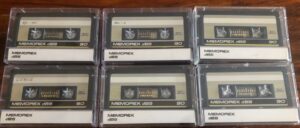
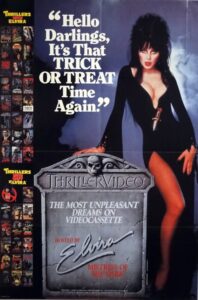
By then, I knew who Ozzy was, and was aware of his bat-biting notoriety, though that definitely seemed to be a bigger deal in the USA than it was in the UK (or at least in my corner of rural Scotland). At some point just a little later, Cassandra Peterson, or more accurately Elvira, Mistress of the Dark presented a short series of metal-related shows for the BBC. One episode included Penelope Spheeris’ fantastic documentary The Decline of Western Civilization Part II: The Metal Years, which includes one of my favourite Ozzy interviews, but also concert footage of Ozzy. The film captures him during his ‘mad housewife’ period when his image seemed to be based on Jackie Collins’s style at the time. I love that era of Ozzy now, but at the time I thought it was laughably awful.
It must have been around the same time that I became aware of Ozzy’s history with Black Sabbath, who I only knew in their then-current incarnation with Tony Martin, which again I now love but at the time thought irremediably middle-aged and boring. The fact that Ozzy’s Black Sabbath was from the 70s meant that I pretty much dismissed them without needing to hear them. When Elvira showed a classic early Led Zeppelin concert in black and white I also found that tiresomely old and dull, especially in comparison with the Napalm Death concert she presented. It’s hard to relate to now, but in the 80s, for me – and I think for most people I knew of my age – the 70s was cheesy, embarrassing and possibly funny, but with no redeeming features. Actually, that’s how the 80s were for a good part of the 90s too; changed days.
Again, like most of the metal fans I knew, I loved metal, but I mostly didn’t like rock. Metal meant precision, virtuosity, heaviness and speed. Rock (to this kind of metal fan) was simplistic, old-fashioned and (worse) commercial. Oddly, I never thought to include the very glam-oriented hair metal bands I liked in the rock camp; which I can now see is where they really belonged. I loved bands like Poison, Faster Pussycat and Pretty Boy Floyd, despite the fact that their very obvious ambition was to be famous and that they wrote schmaltzy ballads. I made the same exception, mysteriously, for Guns ‘n’ Roses, who I loved. But I thought of them as metal, not rock.

It was a distinction that my parents’ generation seemed simply not to understand. To them and their friends if you liked Metallica wasn’t that basically the same as liking Meat Loaf? But I was of the generation for whom, from the earliest days of primary school, the idea of being seen in flared trousers was the stuff of nightmares. That horror of the era we were born in was hard to let go of, which is no doubt partly why the legacy of punk was easy to embrace later. In 1987-8, when I first heard them, Metallica instantly became one of my favourite bands and soon …And Justice For All became one of my favourite albums. A crucial part of that was that the band, as I first knew them, looked cool to me. When, probably later that year, I first heard Ride the Lightning and Master of Puppets I loved those too, but the sight of the great Cliff Burton (RIP) in his denim bellbottoms with his middle-parted hair and little moustache, looking like he should have been in Status Quo circa 1974 was extremely cringe-inducing; that was not cool. Not in Scotland in 1988 anyway.
It took a while for that attitude to change. One of the gateway albums that led young teen me away from heavy metal and towards the indie/alternative world was Faith No More’s The Real Thing, which included a cover of “War Pigs.” And at that time the song still felt old fashioned and less good than the rest of the album to me. It was only after a few years of hardcore indie snobbery that my attitude really changed. As my adolescence got to the more painfully introspective stage I stopped listening to metal, having been introduced to things like the Pixies and Ride and simultaneously discovering slightly older music like The Smiths, The Cure, Joy Division and the Jesus & Mary Chain. The part of me that still liked loud and heavy guitars didn’t care so much about precision anymore and so alongside the typical UK indie stuff, I also liked grunge for a while, mainly Mudhoney, Tad and Nirvana, but especially grunge-adjacent weirdness like the Butthole Surfers and Sonic Youth. That would seem to provide an obvious bridge to the hard rock of the 70s, since virtually all grunge-oriented bands referenced Sabbath and Kiss, but no.
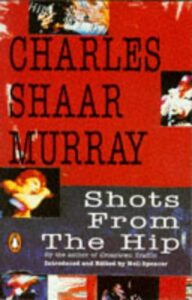
In fact, what happened was that in the Britpop era, I loved 70s-influenced bands like Pulp and Suede (I was never a fan of Blur or Oasis) and as Britpop quickly became dull I started to get into the older music that Britpop referenced. At first it was mostly Bowie and Lou Reed, but after reading Shots From the Hip (referenced a million times on this website) by Charles Shaar Murray, I broadened my horizons to include 70s glam in general (Roxy Music, Eno, Jobriath, Raw Power-era Stooges, but also the bubblegum stuff) and other things that Murray mentioned, whether positively or disparagingly. The latter seems odd but I’ve discovered lots of things I like that way. And suddenly, Ozzy was inescapable (though less so than he is this week).
I bought the Charles Shaar Murray book because Bowie was featured heavily in it; but he also wrote about Black Sabbath. I also bought a book by the great photographer Mick Rock, because he had photographed Bowie and Lou Reed and Iggy and John Cale; but who should be in there but Ozzy, looking uncharacteristically thoughtful. I bought old 70s music annuals from the glam and tail end of glam era; things like Fab 208 – because they had Bowie and Mott the Hoople and Pilot and whatnot in them, but inside there was also mention of Black Sabbath. I remember a paragraph about their then-forthcoming compilation We Sold Our Souls for Rock ‘n’ Roll being especially intriguing.

Anyway, one thing led to another and I spent a large chunk of the late 90s and early 2000s immersing myself in the music of the 1970s. At first it was primarily glam, but then all kinds of rock, pop, soul, funk etc. At some point it started including bands that I’d long been aware of and never liked; like Led Zeppelin, Kiss – and Black Sabbath. The first Black Sabbath album I owned was Sabotage, bought for 50 pence in a charity shop. The texture of the sleeve was, interestingly, the same texture as my LP of Joy Division’s Unknown Pleasures, but the imagery was a little less classy, thanks to Bill Ward’s gingham underpants being visible through his red tights; oh well. Ozzy sounded pretty much as I remembered from “Miracle Man,” but primed by Charles Shaar Murray’s description of ‘Ozzy [caterwauling] about something or other in a locked basement’ and with a more sympathetic production and – crucially – the far more bare and elemental sound of Black Sabbath that had been so unappealing just a few years earlier, he sounded right. And then, when I heard the earliest Black Sabbath albums, Black Sabbath and Paranoid, both from 1970, one of the things they reminded me of, most unexpectedly, was Joy Division.
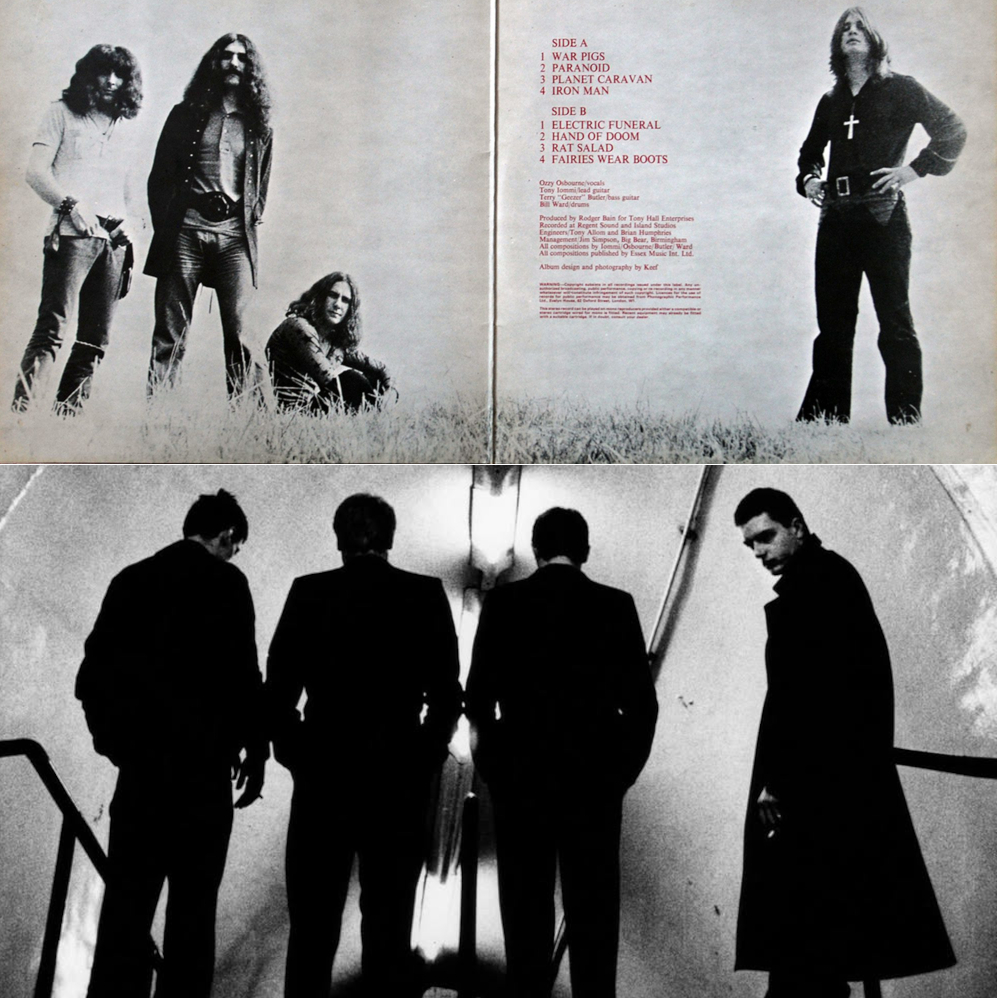
Yes, the whole aura is different. Sabbath were surly and aggressive where Joy Division were solemn and withdrawn; but there’s something about the simplicity of the sound. Geezer and Hooky’s basses took up as much space as Tony and Bernard’s guitars. Bill Ward, like Stephen Morris, was a drummer who brought a strong dance/funk element into the band’s rock music without any sense of incongruity. Ozzy and Ian Curtis are worlds apart as vocalists, but both have a despairing intensity that makes them stand out, even within their respective genres.
Both bands were from the grim, grey, hopeless industrial 1970s north of England, but whereas Joy Division were definitively a product of Manchester, with all the gritty coolness that conferred upon them, Sabbath were solidly of Birmingham, with all of the perceived oafishness and lack of credibility that entailed in the music press at least. Both singers were self-destructive too, but the same year that Ian Curtis tragically ended his life, Ozzy was reflecting on his self-destructive behaviour in “Suicide Solution”* and starting his life anew, launching a solo career which, against all expectations, made him an even bigger star and ultimately the icon who is being mourned today, far more widely than I’m sure he would ever have imagined. It was a good ending.
*Ozzy was always a far more thoughtful lyricist than he’s given credit for; I can’t think of any other artist from the aggressively cocky 80s hair metal scene who would have written the glumly confessional anthem “Secret Loser” from Ozzy’s 1986 album The Ultimate Sin

Because I’m a nerd, and not just a music nerd, writing this piece made me think of Michael Moorcock’s elegiac sci-fi/fantasy novel, The End of All Songs. It was published in 1976, the year that Ian Curtis, Peter Hook and Bernard Sumner met at a Sex Pistols concert in the Lesser Free Trade Hall in Manchester, the year that Black Sabbath released their seventh album, Technical Ecstasy – generally agreed to be the one where the cracks started to show in the Ozzy-led lineup, but one of my favourites. Moorcock took the title of his novel from a poem by the Victorian writer Ernest Dowson, which feels appropriate to end with, since fading out is kind of a hassle, text-wise.
With pale, indifferent eyes, we sit and wait
For the drop’d curtain and the closing gate:
This is the end of all the songs man sings.
Ernest Dowson, Dregs (1899)


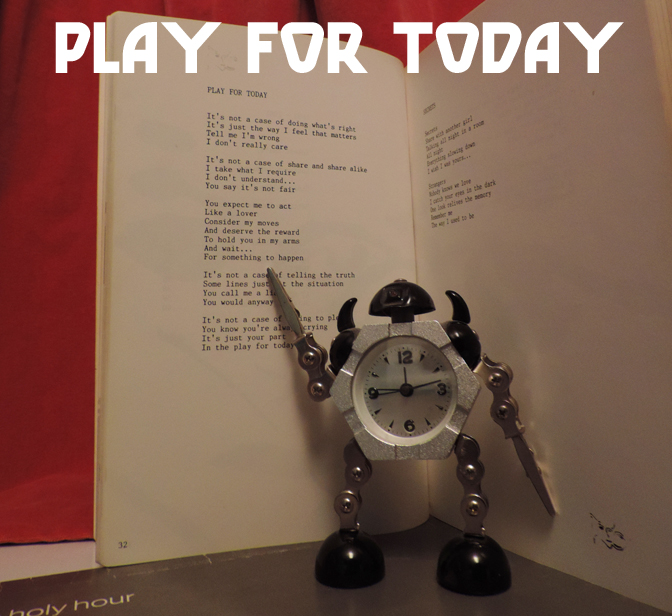



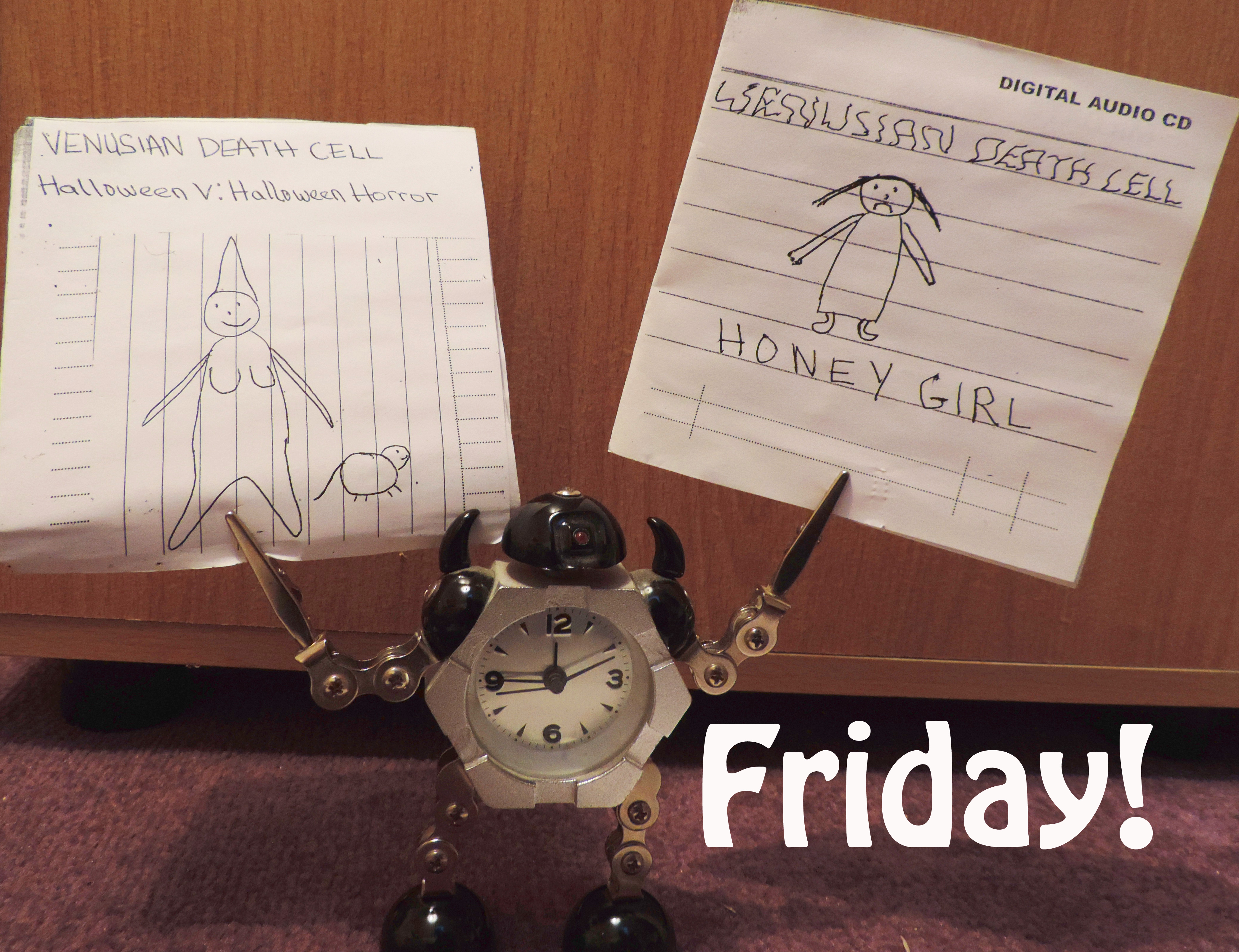
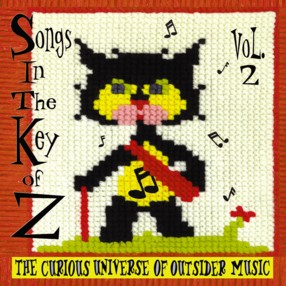

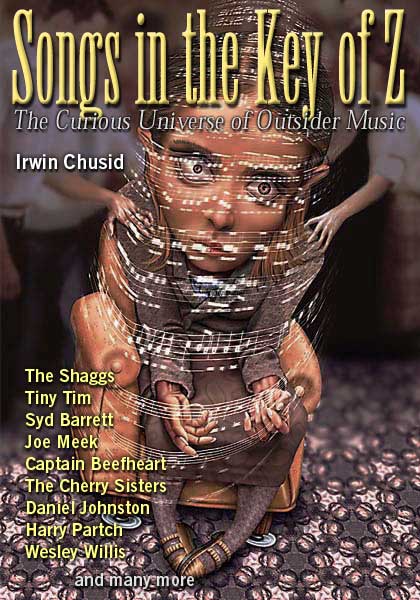 of literature on outsider music, but for a highly readable and well-researched overview, Irwin Chusid’s
of literature on outsider music, but for a highly readable and well-researched overview, Irwin Chusid’s 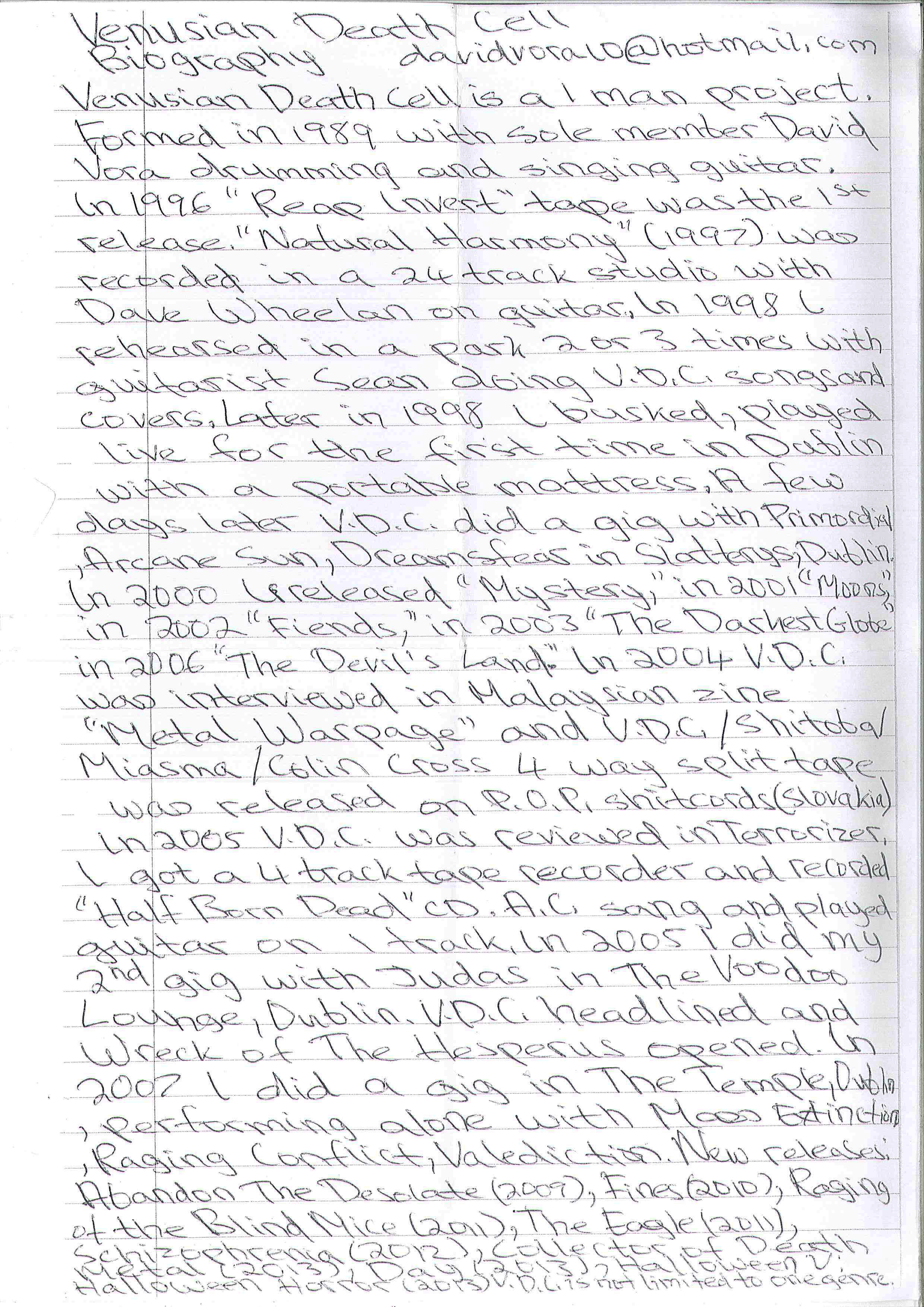
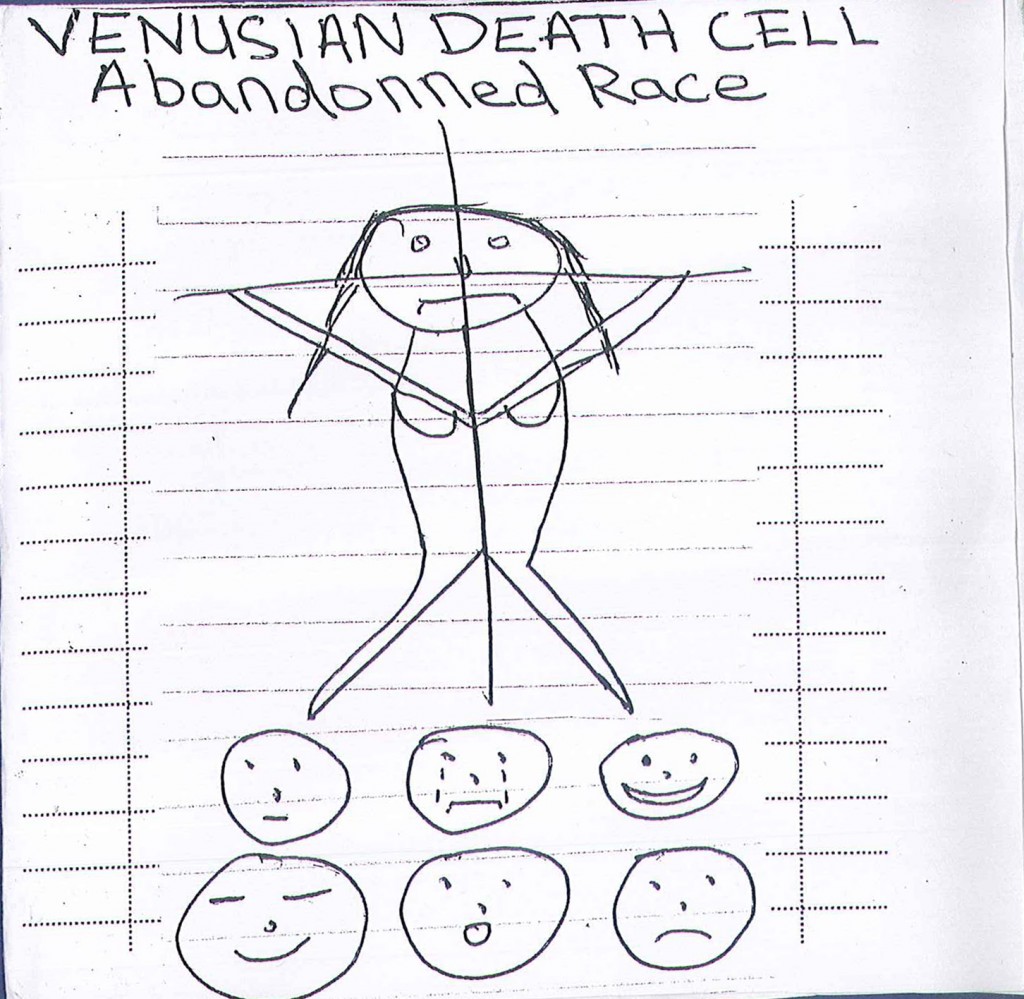
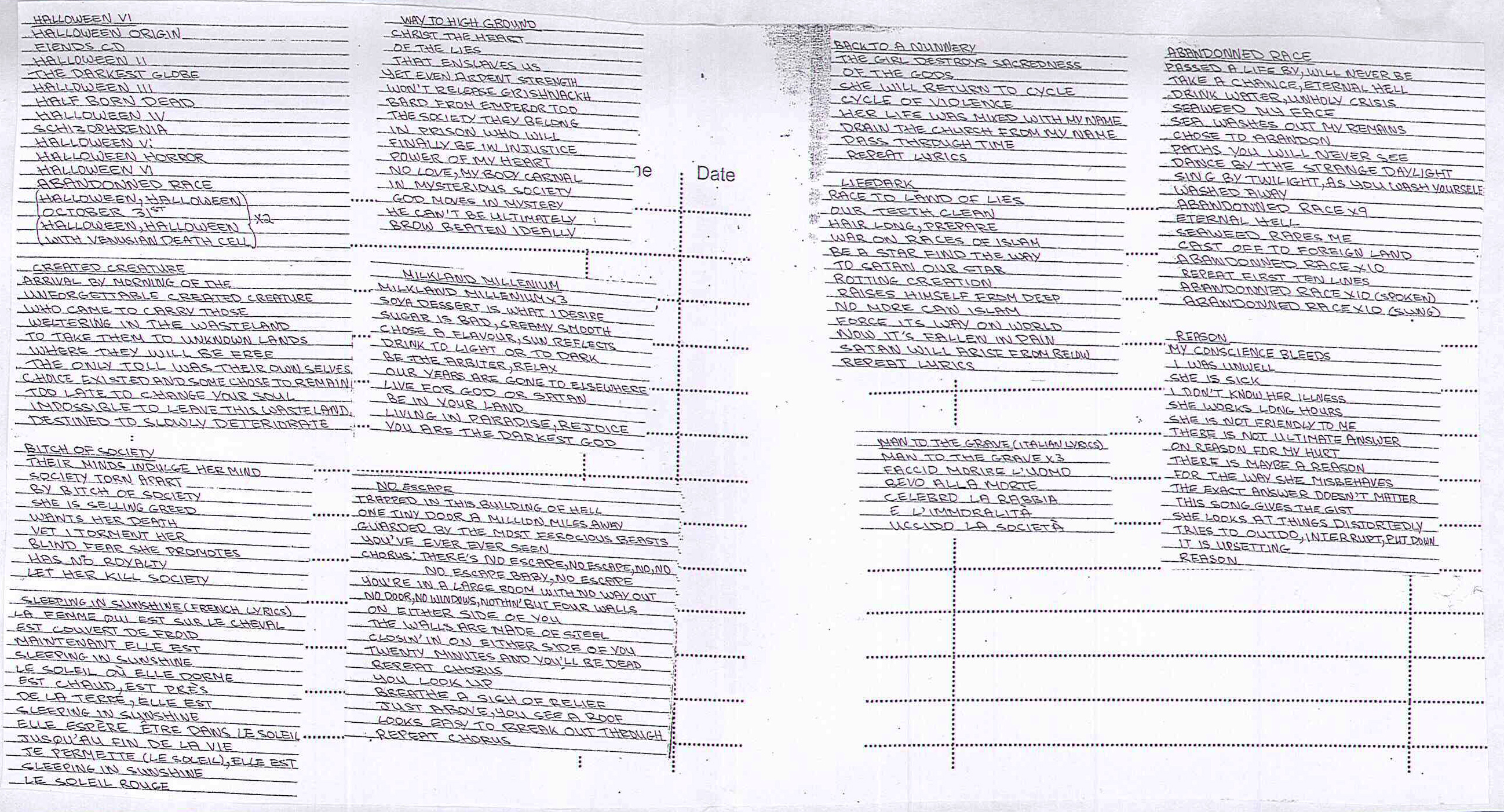
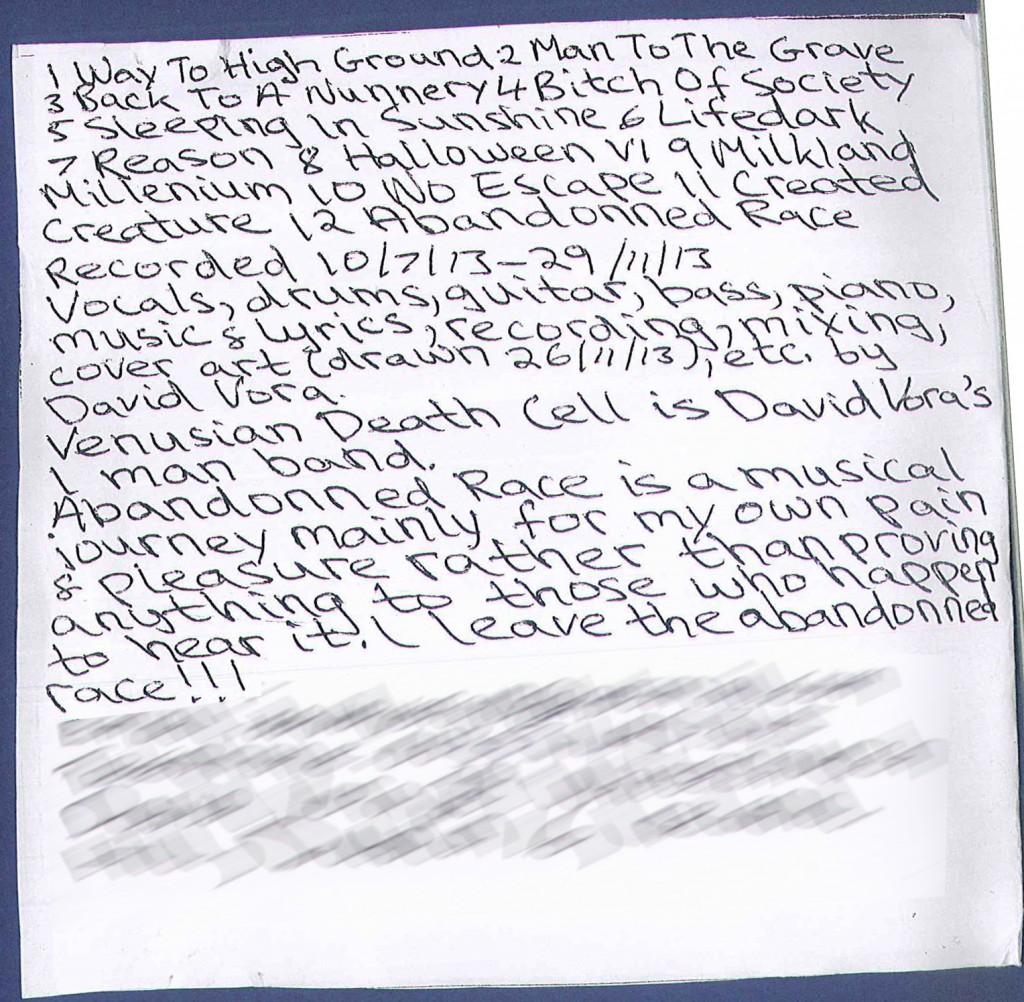
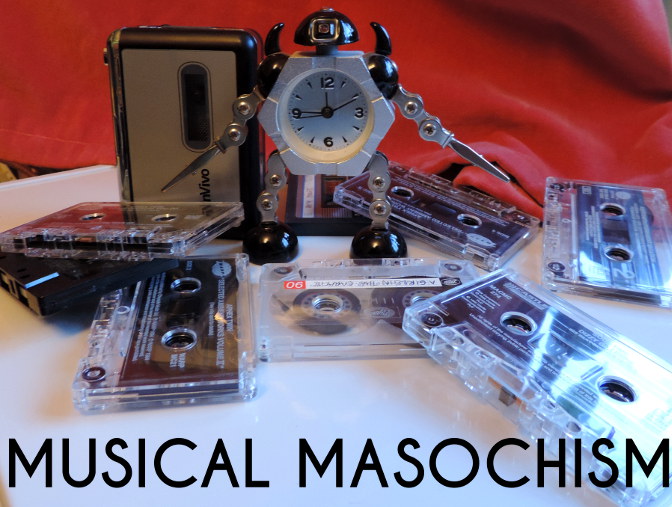

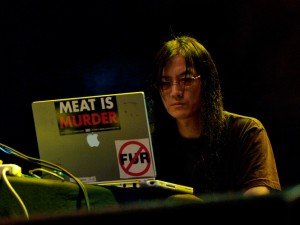
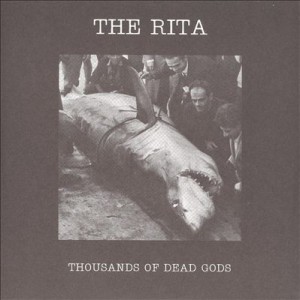 Thousands of Dead Gods (2006) by The Rita many times without ever getting used to it. This makes the noise endlessly surprising, alienating or boring, depending on one’s mood. The sense of noise as abstract is reinforced by its context-lessness; typically the artwork for a Merzbow album is as enigmatic and unrevealing as the album within, and occasionally every bit as flatly un-evocative (not a criticism!) as the Merzbow sound itself. Cultural identifiers in pure noise are also minimalist in the extreme; the race, nationality or gender of noise artists tends to be known only insofar as the artist wishes it to be so.
Thousands of Dead Gods (2006) by The Rita many times without ever getting used to it. This makes the noise endlessly surprising, alienating or boring, depending on one’s mood. The sense of noise as abstract is reinforced by its context-lessness; typically the artwork for a Merzbow album is as enigmatic and unrevealing as the album within, and occasionally every bit as flatly un-evocative (not a criticism!) as the Merzbow sound itself. Cultural identifiers in pure noise are also minimalist in the extreme; the race, nationality or gender of noise artists tends to be known only insofar as the artist wishes it to be so.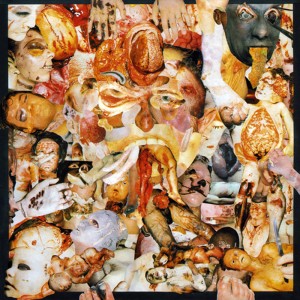 Back in the 80s, this kind of music had an outsider/snob appeal even within the metal genre. 80s metal (on the whole) strove for clarity and precision; Carcass (emerging from an anarcho-crust/punk background) pushed the boundaries of musical extremity and taste (using the notorious collages of medical photos for their artwork, rather than relatively cuddly horror mascots like Iron Maiden’s Eddie) beyond what the standard fan of Iron Maiden, W.A.S.P., Metallica or even Slayer might find acceptable. To say that death metal is relatively lighthearted is slightly misleading – Carcass’ early music was informed by a radical vegetarian disgust with all things meat-based in quite a serious way – but as a subgenre of a popular youth-focussed music it lacks the gravitas of the kind of music which made the late 70s a darker place to have ears.
Back in the 80s, this kind of music had an outsider/snob appeal even within the metal genre. 80s metal (on the whole) strove for clarity and precision; Carcass (emerging from an anarcho-crust/punk background) pushed the boundaries of musical extremity and taste (using the notorious collages of medical photos for their artwork, rather than relatively cuddly horror mascots like Iron Maiden’s Eddie) beyond what the standard fan of Iron Maiden, W.A.S.P., Metallica or even Slayer might find acceptable. To say that death metal is relatively lighthearted is slightly misleading – Carcass’ early music was informed by a radical vegetarian disgust with all things meat-based in quite a serious way – but as a subgenre of a popular youth-focussed music it lacks the gravitas of the kind of music which made the late 70s a darker place to have ears. every bit as evocative of the 1970s as glam or disco, but the way it embodies its era, its brutalist architecture and grey/brown/beige ambience, combats any possible sense of nostalgia. Although it’s easy to say why it’s interesting, liking Throbbing Gristle (as many have done and continue to do) is much harder to explain. The appeal of TG; in effect the appeal of being made to feel uneasy or disgusted, is an odd way to be entertained. On the surface you could say the same about the horror genre in cinema and literature, but Throbbing Gristle’s effect is utterly different from straightforward horror-as-entertainment, feeling (to me anyway) more analogous to the JG Ballard of The Atrocity Exhibition or Crash than to Stephen King, perhaps because like Ballard, TG’s work had more to do with documenting than it did with entertaining. Although there was undoubtedly an element of confrontation in TGs music (especially in a live setting), as with pure noise, confrontation
every bit as evocative of the 1970s as glam or disco, but the way it embodies its era, its brutalist architecture and grey/brown/beige ambience, combats any possible sense of nostalgia. Although it’s easy to say why it’s interesting, liking Throbbing Gristle (as many have done and continue to do) is much harder to explain. The appeal of TG; in effect the appeal of being made to feel uneasy or disgusted, is an odd way to be entertained. On the surface you could say the same about the horror genre in cinema and literature, but Throbbing Gristle’s effect is utterly different from straightforward horror-as-entertainment, feeling (to me anyway) more analogous to the JG Ballard of The Atrocity Exhibition or Crash than to Stephen King, perhaps because like Ballard, TG’s work had more to do with documenting than it did with entertaining. Although there was undoubtedly an element of confrontation in TGs music (especially in a live setting), as with pure noise, confrontation 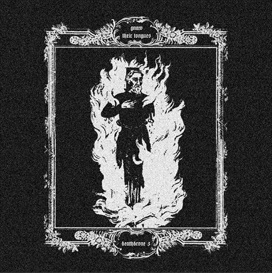 isn’t the focal point that it becomes in the power electronics of groups like Whitehouse and Sutcliffe Jügend who (to some extent) followed on from the early British industrial scene. There is also a more straightforwardly ‘horror noise’ sub-subgenre including bands like Abruptum and the aforementioned Gnaw Their Tongues, whose aim seems to be to engender (with, it must be said, varying degrees of success) extreme anxiety in the listener; significantly different from the almost abstract quality of pure (if harsh) noise artists like Merzbow, easier to understand, but also easier to dismiss as sensationalism.
isn’t the focal point that it becomes in the power electronics of groups like Whitehouse and Sutcliffe Jügend who (to some extent) followed on from the early British industrial scene. There is also a more straightforwardly ‘horror noise’ sub-subgenre including bands like Abruptum and the aforementioned Gnaw Their Tongues, whose aim seems to be to engender (with, it must be said, varying degrees of success) extreme anxiety in the listener; significantly different from the almost abstract quality of pure (if harsh) noise artists like Merzbow, easier to understand, but also easier to dismiss as sensationalism.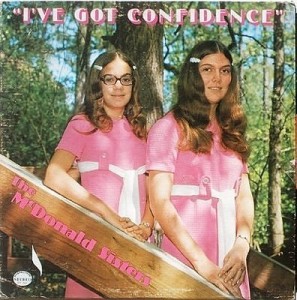 Across all of the arts there are ‘so bad it’s good’ works that appeal on the ironic level of kitsch. These are completely subjective and therefore a bit of a minefield; at what point does listening to something that you personally think is so awful that it’s funny become just listening to it; and is there any difference anyway? Did my teenage self and friends have a different experience listening to an old Shakin’ Stevens tape ‘for a laugh’ than “Shaky”’s actual fans did or do? Well, yes, presumably; they probably don’t laugh as much. Still; it’s all ‘listening with pleasure’ and not only is it subjective, but it’s all about timing. The awfulness of music is as much about the zeitgeist as the popularity of music is; hard to imagine now, but there was a time in the late 80s when listening to Abba (or The Carpenters for that matter) could be enjoyed as revelling in tacky 70s awfulness; but since the early 90s they have been revered by the once-embarrassed media as a great band after all.
Across all of the arts there are ‘so bad it’s good’ works that appeal on the ironic level of kitsch. These are completely subjective and therefore a bit of a minefield; at what point does listening to something that you personally think is so awful that it’s funny become just listening to it; and is there any difference anyway? Did my teenage self and friends have a different experience listening to an old Shakin’ Stevens tape ‘for a laugh’ than “Shaky”’s actual fans did or do? Well, yes, presumably; they probably don’t laugh as much. Still; it’s all ‘listening with pleasure’ and not only is it subjective, but it’s all about timing. The awfulness of music is as much about the zeitgeist as the popularity of music is; hard to imagine now, but there was a time in the late 80s when listening to Abba (or The Carpenters for that matter) could be enjoyed as revelling in tacky 70s awfulness; but since the early 90s they have been revered by the once-embarrassed media as a great band after all. This category takes it for granted that unhappiness is a form of unpleasantness that is most often avoided; which may not be strictly true – or obviously isn’t, given the endless popularity of tragedies, murder mysteries etc. Still, it’s a basic human truth (I hope) that most people would rather be happy than sad. Most of the time that is; historically, music was most often written for occasions; sad music was required for a funeral, just as weddings demanded happy music. Tudor and baroque music often had mythological, narrative or literary inspiration which dictated the mood of the works. For a court composer to make a cheerful-sounding funeral dirge or a comic opera from a tragic mythological story would be perverse at best and bad workmanship at worst.
This category takes it for granted that unhappiness is a form of unpleasantness that is most often avoided; which may not be strictly true – or obviously isn’t, given the endless popularity of tragedies, murder mysteries etc. Still, it’s a basic human truth (I hope) that most people would rather be happy than sad. Most of the time that is; historically, music was most often written for occasions; sad music was required for a funeral, just as weddings demanded happy music. Tudor and baroque music often had mythological, narrative or literary inspiration which dictated the mood of the works. For a court composer to make a cheerful-sounding funeral dirge or a comic opera from a tragic mythological story would be perverse at best and bad workmanship at worst.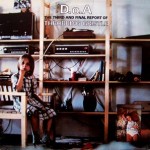






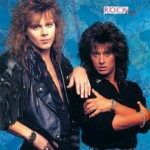

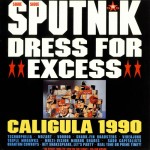

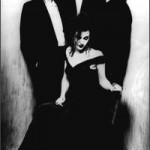



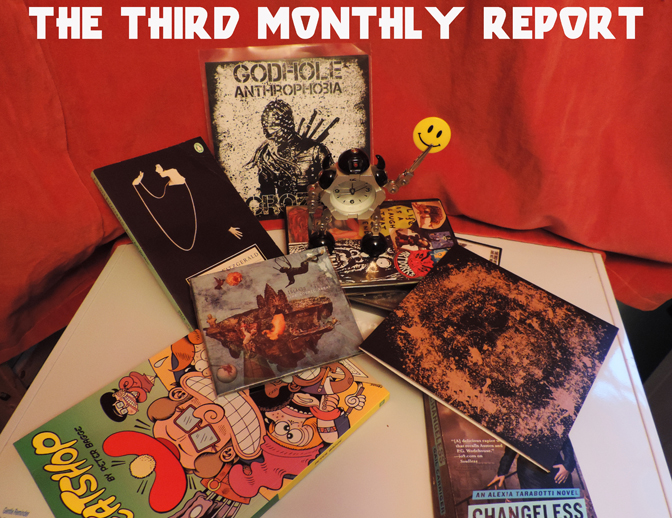
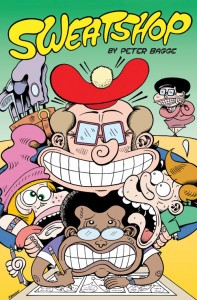 At first, Sweatshop feels more like one of Peter Bagge’s more lightweight, knockabout strips like Batboy or Studs Kirby, and compared to the brilliant Woman Rebel it is, but there’s more substance to the characters in Sweatshop than you’d think. This is perhaps because the situation (a group of ambitious young cartoonists working for a grouchy, reactionary, but famous old cartoonist to produce his well-known but trivial newspaper strip) is one close to the hearts of Bagge and his own team of artists. It’s funny and silly, but also well plotted and with some sharp observations about the world of cartooning as well as human relationships etc; a good book in fact.
At first, Sweatshop feels more like one of Peter Bagge’s more lightweight, knockabout strips like Batboy or Studs Kirby, and compared to the brilliant Woman Rebel it is, but there’s more substance to the characters in Sweatshop than you’d think. This is perhaps because the situation (a group of ambitious young cartoonists working for a grouchy, reactionary, but famous old cartoonist to produce his well-known but trivial newspaper strip) is one close to the hearts of Bagge and his own team of artists. It’s funny and silly, but also well plotted and with some sharp observations about the world of cartooning as well as human relationships etc; a good book in fact.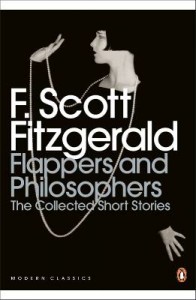 The selection I have was collected by
The selection I have was collected by  I had already heard both of these great releases but when I saw that Mind Ripper were selling them on vinyl 7″s ridiculously inexpensively. Anthrophobia is a brilliant meeting of two very different musical personalities, with Godhole’s intensely emotive and strangely catchy powerviolence being distorted almost to the point of non-music by Crozier’s harsh noise; it’s bracing and not at all pretty, but it has a real impact and is worryingly addictive. The same is true of the Godhole EP, although it is relatively more disciplined insofar as it sounds like a band, rather than a catastrophic nightmare.
I had already heard both of these great releases but when I saw that Mind Ripper were selling them on vinyl 7″s ridiculously inexpensively. Anthrophobia is a brilliant meeting of two very different musical personalities, with Godhole’s intensely emotive and strangely catchy powerviolence being distorted almost to the point of non-music by Crozier’s harsh noise; it’s bracing and not at all pretty, but it has a real impact and is worryingly addictive. The same is true of the Godhole EP, although it is relatively more disciplined insofar as it sounds like a band, rather than a catastrophic nightmare.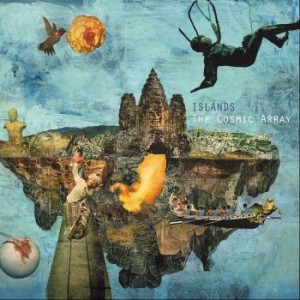 For 99% of the time, a complete contrast with the above (though the second half of Drones is surprisingly noisy and atonal), I was especially impressed by the forthcoming Cosmic Array album because I didn’t expect to like it at all. “Alt country/Americana”, ‘immersive and cinematic’ or not, is not really my thing* but in fact this album brings together a beautifully peculiar space-age melancholy that has (to me) hints of the Flaming Lips, Spacemen 3, My Little Airport and even the BMX Bandits and a sound that is a hybrid of UK indie and alt country (Fire Up The Sky is, strangely, almost shoegaze-alt country; actually, Moose’s XYZ was a great shoegaze/Americana album, so maybe not so strange?). Anyway; the songs are catchy and nice, Paul Battenbough and Abby Sohn are really good, expressive vocalists and it really is a big, widescreen cinematic sound as advertised; so put aside anti-country prejudices (if like me you have them) and give it a listen.
For 99% of the time, a complete contrast with the above (though the second half of Drones is surprisingly noisy and atonal), I was especially impressed by the forthcoming Cosmic Array album because I didn’t expect to like it at all. “Alt country/Americana”, ‘immersive and cinematic’ or not, is not really my thing* but in fact this album brings together a beautifully peculiar space-age melancholy that has (to me) hints of the Flaming Lips, Spacemen 3, My Little Airport and even the BMX Bandits and a sound that is a hybrid of UK indie and alt country (Fire Up The Sky is, strangely, almost shoegaze-alt country; actually, Moose’s XYZ was a great shoegaze/Americana album, so maybe not so strange?). Anyway; the songs are catchy and nice, Paul Battenbough and Abby Sohn are really good, expressive vocalists and it really is a big, widescreen cinematic sound as advertised; so put aside anti-country prejudices (if like me you have them) and give it a listen.
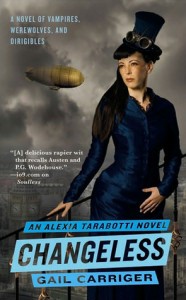
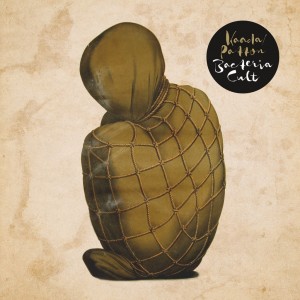 The third collaboration between Mike Patton and John Erika Kaada is, despite the ominous title, an extremely wide ranging and often light-toned (if moody, in the film-soundtrack sense) collection of dramatic and sometimes operatic (but not always melodramatic) pieces, ranging from the strangely Tom Waits-like Papillon to the Morricone-ish Black Albino. It’s a perfectly judged album, Mike Patton’s voice(s) interweaving with the orchestra to create individual pieces that are at the same time short and vast;too involving to be ‘background music’ it really does sound like an epic soundtrack in search of who knows what kind of film.
The third collaboration between Mike Patton and John Erika Kaada is, despite the ominous title, an extremely wide ranging and often light-toned (if moody, in the film-soundtrack sense) collection of dramatic and sometimes operatic (but not always melodramatic) pieces, ranging from the strangely Tom Waits-like Papillon to the Morricone-ish Black Albino. It’s a perfectly judged album, Mike Patton’s voice(s) interweaving with the orchestra to create individual pieces that are at the same time short and vast;too involving to be ‘background music’ it really does sound like an epic soundtrack in search of who knows what kind of film.